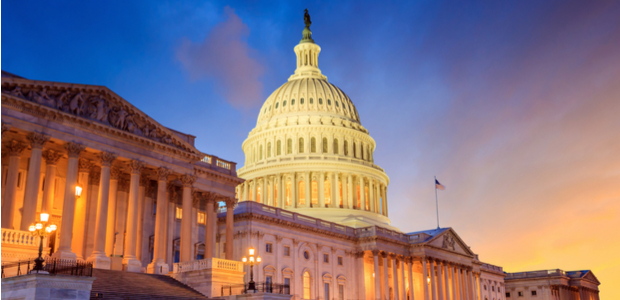House Intel chairman upbeat on cyber legislation
Rep. Mike Rogers says a better public understanding of cyber issues in the wake of the Snowden leaks would help push information-sharing proposals forward.

The chairman of the House Intelligence Committee says he is "extremely optimistic" that Congress can pass an information-sharing bill for cybersecurity this year.
Michigan Republican Mike Rogers said June 12 that his meeting the day before with Intel ranking Democrat Dutch Ruppersberger of Maryland and their Senate Intelligence Committee counterparts, Dianne Feinstein (D-Calif.) and Saxby Chambliss (R-Ga.), was the "most productive" of the year related to the information-sharing legislation.
Though some members of Congress have raised privacy concerns over information sharing between the private and public sector, the legislation now enjoys bipartisan support in part because intelligence officials have briefed lawmakers on the full scope of cyber issues, Rogers said at an American Enterprise Institute conference.
Chambliss expressed similar optimism last week about the compatibility of the House and Senate bills.
The House passed its version in April 2013 with two-thirds support; the Senate has yet to bring a bill to the floor in this Congress.
The House bill would establish response centers for threat information in the departments of Homeland Security and Justice, with DOJ focusing on cybercrime.
Rogers said that public misconceptions of intelligence agencies after the leaks of former National Security Agency contractor Edward Snowden have made passing information-sharing legislation significantly harder.
"Every day there’s a new article that isn't exactly right in the newspaper about leaks that are coming out from the NSA," he said at the AEI event in Washington, D.C.
A January poll from the Associated Press and GfK found that more than 60 percent of Americans surveyed said it was more important for the government to safeguard their civil rights than protect them against terrorism.
Rogers called that a false choice.
"We're caught in these series of debates that you have to have either privacy or security. I believe you have to have both, and you can have both," he said.
In the debate over the virtues of information sharing, cybersecurity experts have said it might take a high-profile cyberattack for the public to grasp the seriousness of the threat. But that public realization has yet to come, Rogers said.
"I really did hope that the Target example would kind of shock Americans to understanding as great as an opportunity as the Internet is, it also presents a whole new level of danger that we need to try to deal with," he said, referring to the hacking of 40 million payment accounts at the retail giant. "I don’t think our psyche has gotten there yet."
Former NSA Director Gen. Michael Hayden also vigorously defended the agency's bulk collection of data at the AEI event, and agreed with Rogers that cyberspace is largely new policy territory for the government and public. Americans "have not yet determined what it is we want the government to do to keep us safe in this new domain, and we certainly haven’t decided what it is we are going to let the government do to keep us safe in this domain," he said.





